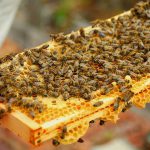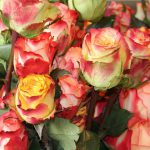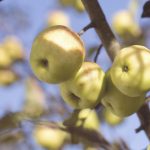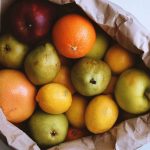
Introduction
- Floriculture, or flower farming, is a discipline of horticulture concerned with the cultivation of flowering and ornamental plants for gardens and for floristry, comprising the floral industry. The development plant breeding of new varieties is a major occupation of floriculturists.
- Floriculture crops include bedding plants, flowering plants, foliage plants or houseplants, cut cultivated greens, and cut flowers. As distinguished from nursery crops, floriculture crops are generally herbaceous. Bedding and garden plants consist of young flowering plants (annuals and perennials) and vegetable plants. They are grown in cell packs (in flats or trays), in pots, or in hanging baskets, usually inside a controlled environment, and sold largely for gardens and landscaping.
- Flowering plants are largely sold in pots for indoor use. Foliage plants are also sold in pots and hanging baskets for indoor and patio use, including larger specimens for office, hotel, and restaurant interiors.
Source: http://en.wikipedia.org/wiki/Floriculture
| Nursery. Photo used courtesy of Helen Gordon, WWF-SA. |
Contents
Local business environment
Find information about trade, events, government notices and more on the South African Nursery Association (SANA) website, www.sana.co.za.
Role players
Companies
Representative Bodies
Training, Consulting & Research Service Providers
AgriSETA (Agriculture Sector Education and Training Authority) –
www.agriseta.co.za
Details of AgriSETA-accredited training providers may be found on its website.
Community, NGO and NPO Service Providers
South African Green Industries Council (SAGIC) –
https://sagic.co.za
SAGIC does IAS training and consulting.
Further reference:
Associations
- The South African Nursery Association (SANA) represents the nursery industry as a whole, and also represents individual associations such as (i) Allied, Bulb & Seed Trade Association (ii) Bedding Plant Growers Association (iii) Garden Centre Association (GCA), and (iv)Growers Association.
- The Botanical Society Head Office, situated at Kirstenbosch Botanical Gardens, has sixteen branches – find details on the website.
- Find details of Cape Flora SA and the Intensive Growers Association (IGA) on the “Cut flowers” page.
Training and research
- See also the “Cut flowers” page.
- Read about several South African Qualifications Authority (SAQA)-accredited qualifications to do with floriculture and ornamental plants: (i) Care for ornamental seedlings; (ii) Identify the major categories of ornamental plants; (iii) Apply fertilizers to ornamental plants and landscapes; (iv) Identify and prepare soils for landscaped planting. Find the links on the AgriSETA website.
- Find information on SANA workshops and in-service training for students at www.sana.co.za.
Companies
- Also find the list of garden centres at www.sana.co.za, www.lifeisagarden.co.za and www.horti.co.za.
- Find other seed companies at www.sansor.org.
Websites and publications
See the websites listed earlier on this page.
- Find the online resource with notes and photos, www.plantbook.co.za.
- The Directorate International Trade at the Department of Agriculture, Land Reform and Rural Development (DALRRD) compiled A profile on the aloe industry for export. Contact them for it.
- Available at www.dalrrd.gov.za are the following brochures and production guidelines: (i) Anthurium (flamingo flower) (ii) Bottlebrush (Callistemon species) (iii) Cancer Bush (Lessertia frutescens) (iv) Rosemary (Rosmarinus officinalis) (v) Aloe ferox, and (vi) Sea Lavender flower.
- Wilman, V. 2019. A practical guide for community-run nurseries: Growing indigenous plants for restoration. Cape Town: WWF South Africa. Available at www.wwf.org.za.
- The AgriSETA Assessment Guide Primary Agriculture “Monitor the establishment of a crop” includes ornamental plants. See www.agriseta.co.za/wp-content/uploads/2021/03/116079_LG.pdf.
- The Royal Horticultural Society’s Propagating Plants, published by Dorling Kindersley.
- Find the following on www.amazon.com: (i) The Garden Succulents Primer and Garden Succulents by Ben-Erik Van Wyk, Gideon F. Smith (ii) Guide to the Aloes of South Africa by Gideon Smith, Ben-Erik Van Wyk
- The Garden Guardian’s guide to environmentally-responsible garden care, published by Aardvark Press. The publication is available from www.aardvarkpress.co.za or www.takealot.com.
- Find the many grower guides at www.growveg.co.za.
- The Wild Flower Guides to the indigenous flora of South Africa and other publications are available from the Botannical Society Visitors Centre at Kirstenbosch. See www.botanicalsociety.org.za.
- The Gardener, “The Best Gardening Magazine in South Africa”. Visit www.thegardener.co.za.
- The Indigenous Gardener digital magazine, www.theindigenousgardener.co.za.
- Find details of the latest Indigenous Gardening Handbook at www.indigenousplantfair.org.za.
- See the Ballstraathof website for seasonal charts and other useful information: www.ballstraathof.co.za.
Some articles:
- Burger S. 2022, July 22. “Aloe ferox, Honeybush biodiversity management temporarily handed to Eastern, Western Cape depts”. Engineering News. Available at www.engineeringnews.co.za/article/aloe-ferox-honeybush-biodiversity-management-temporarily-handed-to-eastern-western-cape-depts-2022-07-22/rep_id:4136
- Dall N. 2021, May 3. “Succulent smuggling: why are South Africa’s rare desert plants vanishing?” The Guardian. Available at www.theguardian.com/environment/2021/may/03/drought-dust-storms-plant-theft-unique-botanical-landscape-peril-aoe
- Jansen C. 2020, January 13. “Fruit nurseries in South Africa adapt to degradable paper containers”. FreshPlaza. Available at www.freshplaza.com/article/9177957/fruit-nurseries-in-south-africa-adapt-to-degradable-paper-containers/
- Kriel G. 2020, January 8. “Time for SA farmers to cash in on the succulent boom”. Farmer’s Weekly. Available at www.farmersweekly.co.za/agri-business/agribusinesses/time-for-sa-farmers-to-cash-in-on-the-succulent-boom/
International
- Refer to the “International business environment” heading on the “Cut flowers” page.
- Find information on the British Ornamental Plant Producers on the website of the Horticultural Trades Association (HTA), https://hta.org.uk
- www.ipps.org – the International Plant Propagators’ Society (IPPS)



Share this article
Recent Posts







